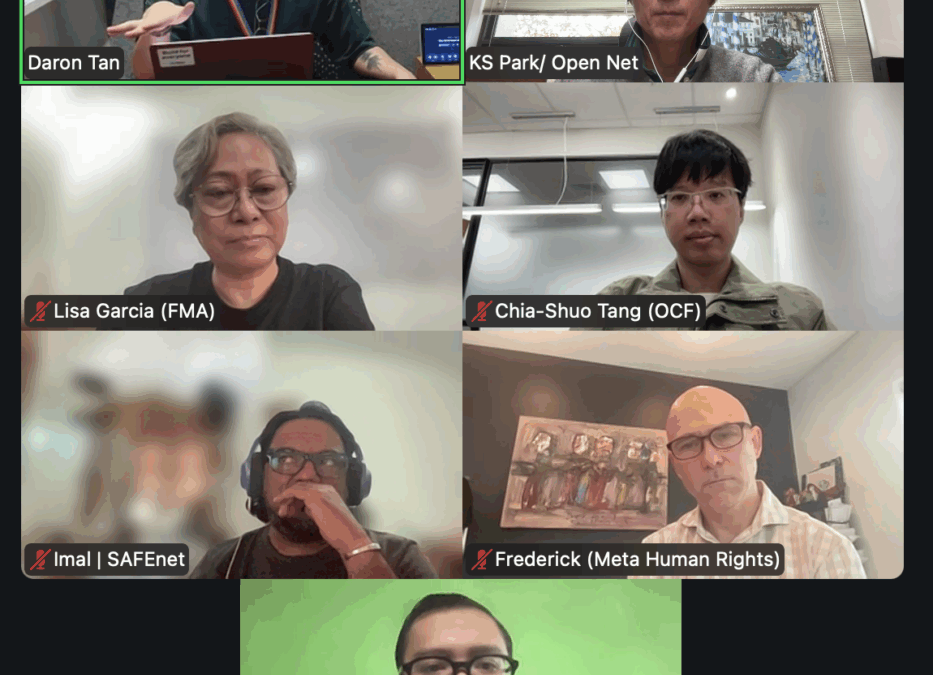This investigation will discourage information-sharing on abortion and it leaves women in need of abortion more vulnerable
Create a legal and medical system that makes abortions faster and safer rather than the investigations
The police investigation of those involved in a 36-week abortion case has rolled back the progress in decriminalizing abortion. This investigation has led to regressive discussions and declarations such as ‘we need to introduce a law to protect the unborn’ and ‘abolish big baby abortion, we are for it’. The police investigation is also problematic in that it re-criminalizes an already decriminalized act and discourages the sharing of life-saving information. Open Net Korea calls on the police to close the investigation without charges and on the Ministry of Health and Welfare of South Korea to stop blaming individuals for their pregnancy termination situations and to create a safer and faster system for women to access abortion.
The police investigation starkly illustrates how administrative agencies can creatively undermine the rights of vulnerable populations. Since the 2019 ruling that deemed the ‘abortion law’ unconstitutional, the Ministry of Health and Welfare of South Korea has seemingly neglected the needs of women seeking abortions, as if waiting for a crisis to unfold. The most troubling aspect is that, with no legal framework recognizing a fetus as a person and the ‘abortion law’ abolished, the Ministry actively sought a case to criminalize. They prompted a police investigation based on a 2021 case where a doctor was convicted of infanticide for performing an abortion on a 34-week pregnant woman. This overzealous investigation, which included two hospital raids and a murder charge referral, unjustly shifted the ethical blame onto the woman involved. On August 20, 2024, the Ministry’s request for a murder investigation was embraced by the Korean Medical Association as the inaugural mission in their “War on Crime,” aimed at restoring professional ethics by targeting “illegal abortions of large babies.” Ultimately, this investigation request by the Ministry of Health and Welfare has effectively opened a backdoor for the government to regulate pregnancy termination despite the abolition of the ‘abortion law.’
The threat of a police investigation only exacerbates the vulnerability of women who urgently need to terminate their pregnancies. The targeting of online posts and the involvement of law enforcement in these matters not only blocks but also deters women from sharing and accessing critical information. Despite the abolition of the “abortion law,” negative perceptions and stigma surrounding pregnancy termination remain deeply entrenched in South Korean society. This pervasive stigma makes it exceedingly difficult for women seeking abortions to find essential information about hospital quality, procedure costs, and post-procedure care. As pregnancy progresses, the risks increase, and many hospitals become unwilling to perform the procedure, making access to information in the later stages even more crucial. Unfortunately, South Korean society is currently moving in the opposite direction, further limiting the availability of this vital information.
In this context, Open Net Korea is supporting the administrative appeal of Women On Web, whose entire website was blocked by an order from the Korea Communications Standard Commission (KCSC). Women On Web, known for providing crucial information on women’s sexual and reproductive rights and distributing abortion medications to women worldwide who struggle to access abortion services, was suddenly labeled as a site distributing illegal drugs. The KCSC unilaterally blocked the website, despite these medications being unavailable in South Korea due to delays by the Ministry of Health and Welfare of South Korea in approving them. These abortion medications, recognized as safe by the WHO and classified as essential medicines in many countries, are still inaccessible in South Korea. Nonetheless, the court upheld the KCSC’s order to block the site. This perplexing decision by the court and the regulatory authorities has deprived women of a vital source of information on sexual and reproductive rights.
Over the years, numerous women’s researchers have demonstrated that the myths surrounding abortion are rooted in misconceptions. For example, the abolition of restrictive abortion laws and the protection of the right to terminate a pregnancy have not resulted in “reckless” abortions. Women do not choose to terminate pregnancies out of disregard for the life of the fetus but rather after careful consideration of both the fetus’s life and their own well-being after birth. It is crucial for our society to reflect on whether we are trapped in these misconceptions and are unfairly criticizing women who seek to terminate their pregnancies. Most importantly, the Ministry of Health and Welfare of South Korea, which has caused social confusion and anxiety by shirking its responsibility in the wake of a ruling that declared the abortion law unconstitutional, must urgently establish a system that ensures women’s safety rather than regressing with outdated and coercive measures.
August 22, 2024
Open Net Korea


0 Comments